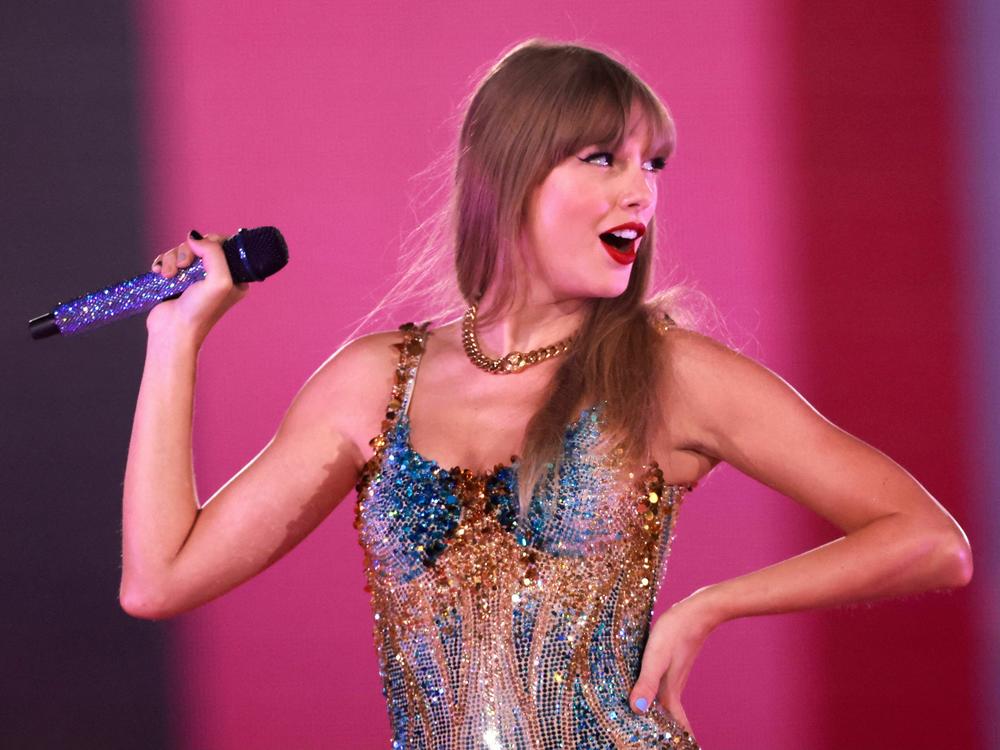Section Branding
Header Content
5 things to know about a stunning week for the economy
Primary Content
The U.S. economy continues to defy gravity.
Data this week showed the economy growing at the fastest pace in nearly two years from July to September. Other reports have also showcased the resilience of the economy.
It's a stunning development, considering that at the beginning of the year, many economists predicted that the economy would tip into a recession as a result of the Federal Reserve's aggressive interest rate hikes.
So what gives?
Here are five takeaways about today's economy, including why forecasters are cautioning that the strong growth may not last.
The economy's strength has been a surprise
The economy got its latest report card this week — and it was very good.
The U.S. economy grew at an annual pace of 4.9% in the third quarter, according to figures released by the Commerce Department on Thursday.
That was the strongest performance since the final months of 2021 — and more than twice the growth rate of the previous quarter.
"It's a good, strong number, and it shows an economy that's doing very well," Treasury Secretary Janet Yellen told Bloomberg TV.
The economic growth is particularly remarkable given that high interest rates would typically result in slower growth — but not this time.
"The economy is just incredibly resilient, navigating through lots of different headwinds and posting a really boomy-like quarter," said Chief Economist Mark Zandi of Moody's Analytics.
And it all thanks to the consumer
There's a key reason why growth has been so strong: all of us.
Americans have been opening their pocketbooks in a major way, buying more cars and Taylor Swift concert tickets.
Data on Friday showed spending on goods rose by a healthy 0.7% during September, while spending on services — things like eating out or travel — rose slightly faster.
"Consumers are resilient," said Matthew Shay, CEO of the National Retail Federation. "They're still powering the economy."
Personal spending is being propped up by a very strong job market, with an unemployment rate below 4% for 20 months in a row.
Workers with paychecks to spend have enabled the economy to withstand speed bumps like falling business investment.
"The consumer is kind of the fire wall between a recession or an economy that keeps on growing," said Zandi. "And that fire wall is hanging tough."
But inflation still remains higher than desired
It's not all rosy for the economy.
Inflation has fallen by more than half since hitting a four-decade high last year, but prices are still climbing faster than most people were used to before the COVID-19 pandemic and Russia's invasion of Ukraine.
According to the Commerce Department's yardstick, which is closely watched by the Federal Reserve, consumer prices were 3.4% higher in September than a year ago.
That means the Fed is not ready yet to declare victory against inflation.
Forecasters think the central bank will hold rates steady when policymakers meet next week, but the Fed is expected to leave the door open to future rate hikes if necessary to get inflation back down to its target of 2%.
Higher prices are clouding the country's mood
Here's another less encouraging report card: Despite solid GDP growth and low unemployment, many people are unhappy with the economy.
A poll by Gallup this month found that 47% of Americans rate the economy as "poor," while only 19% rate it as "good" or "excellent."
Gallup's index of economic confidence shows some improvement from last summer, when inflation was at its peak. But high prices grate on people, even as they continue to pay them.
While inflation has come down a lot, many prices are still much higher than they were before the pandemic. Gasoline is no longer $5 a gallon like it was last summer. But it's not $2.60 either, as it was in 2019.
"Unlike GDP that's very abstract, everybody feels the effects of inflation," said Lydia Saad, director of U.S. social research at Gallup. "That creates a real wet blanket on consumer attitudes. That's just probably not going away until we get back to that kind of pre-pandemic normal inflation that people got used to."
Meanwhile, Zandi at Moody's thinks people are also still scared by the economic upheaval of the last three years.
"We never got our groove back from the pandemic," he said. "People are shellshocked and nervous and skittish."
And the good economic numbers may not last
The economy is almost certain to cool as higher interest rates for things like home mortgages continue to take a toll. The question is how much the economy will slow.
The Treasury's Yellen said she doesn't expect the economy to keep growing at the blistering pace it did in the third quarter. But she doesn't expect it to shift into reverse, either.
"You don't really see any sign of a recession here," Yellen told Bloomberg. "What we have looks like a soft landing with very good outcomes for the U.S. economy, so I think there's a lot to be pleased about."
Other forecasters still think a mild recession is on the horizon, once consumer spending falters.
Friday's data showed that spending grew more than incomes in September — a trend that can't continue indefinitely.
"Obviously, you can eat into savings for a while. You can borrow from the credit card for a while," said economist Tim Quinlan of Wells Fargo. "But this is not a sustainable framework for long-term spending growth."
Copyright 2023 NPR. To see more, visit https://www.npr.org.


